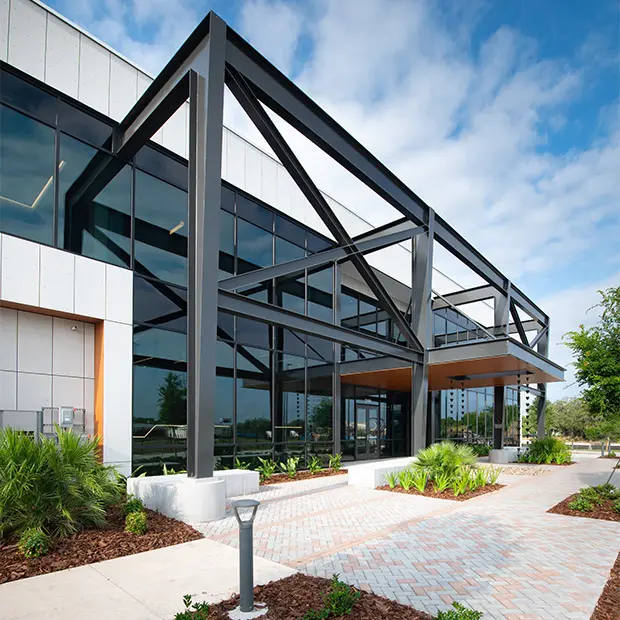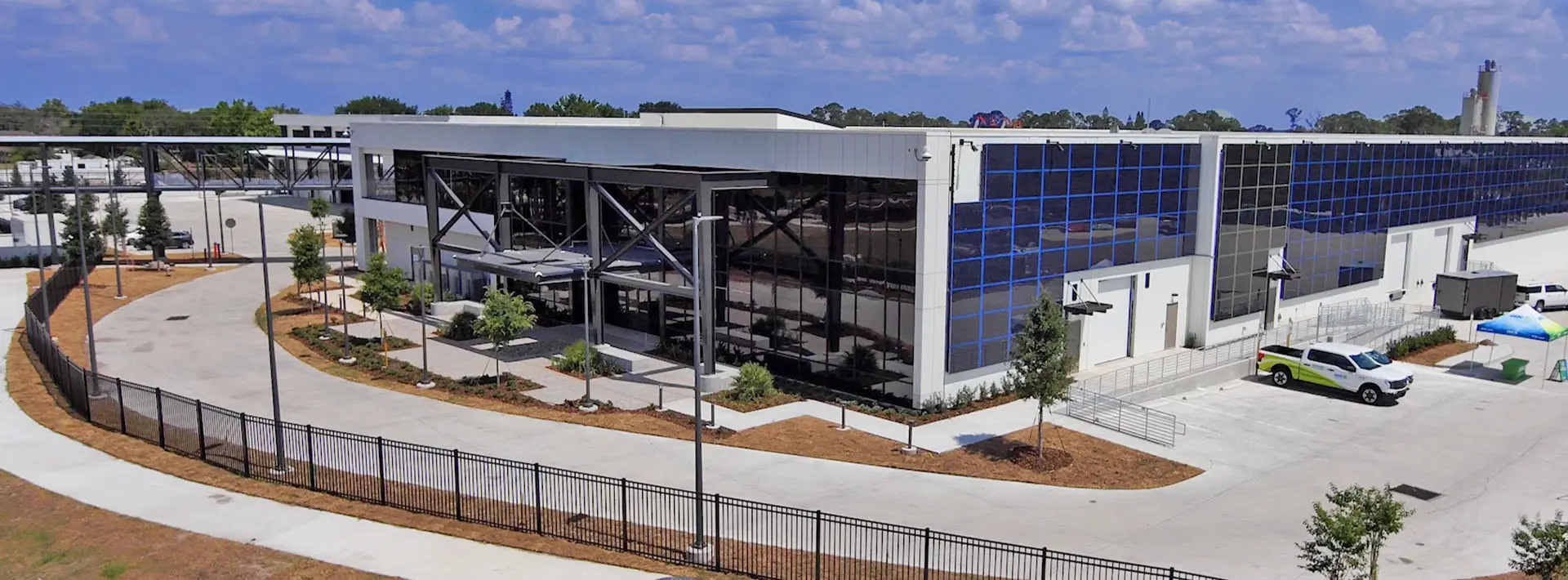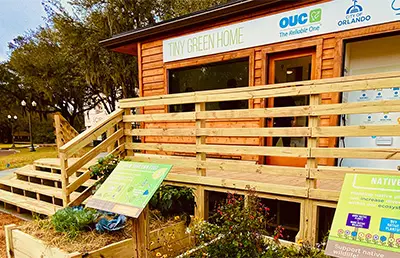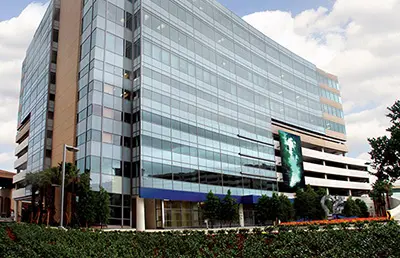
Reliable Plaza
OUC’s 10-story headquarters in downtown Orlando meets the requirements for LEED Gold and Florida Water StarSM certifications and uses 28% less energy and 40% less water than similar buildings.
Reliable Plaza Sustainability Features
Water Usage
Water-efficient landscaping and a cistern for collecting water for irrigation.
Harnessing Solar
Reflective, photovoltaic roofing panels optimize daylight harvesting and solar water heating while reducing light pollution.
Smart Materials
Recycled material and high-efficiency glass with vertical and horizontal shading let in sunlight while limiting glare and increase in temperature.
Sustainable Parking
Covered parking to reduce the heat island effect, as well as preferred parking for low-emission, fuel-efficient and electric vehicles.
Stanton Energy Center
OUC’s primary power generation facility is clean, modern, fuel-diverse and environmentally sound.

Stanton Energy Center Sustainability Features
Generation Units
In terms of environmental performance, air sampling has shown that emissions from Stanton Energy Center are among the lowest of any coal-fired plant in the nation.
Zero Water Discharge Facility
By using wastewater from a nearby treatment facility and onsite rainwater run-off in Stanton Energy Center’s cooling towers, OUC reduces demand on our supply of precious groundwater.
Conservation
More than two-thirds of the five-square-mile site consists of undeveloped, protected wildlife refuge and habitat for a variety of wildlife—including eagles, deer gopher, tortoises and endangered species like the rare red-cockaded woodpecker.
Fuel Diversity
From coal and natural gas to solar energy and landfill gas, Stanton Energy Center (SEC) leads the way as the most diverse power generation site in the state.
Coal
SEC uses low-sulfur, low-ash coal and operates state-of-the-art pollution control equipment to remove pollutants.
Natural Gas
As OUC transitions from coal to renewable energy sources, natural gas bridges the gap.
Solar
There are three solar arrays, including one set atop a closed byproduct landfill.
Landfill Gas
Methane emissions from county landfill cells are captured and piped it to Stanton Energy Center where it is co-fired with coal.
OUC CCR Rule Compliance
The Coal Combustion Residuals (CCR) Rule, (40 CFR Parts 257 & 261: Hazardous and Solid Waste Management System; Disposal of Coal Combustion Residuals From Electric Utilities), has an effective date of October 19, 2015. The rule codifies requirements for the handling and storage of coal combustion residues associated with electric power plants.
One of the requirements is the posting of information associated with CCR storage units. OUC has a dry storage area at the Curtis H. Stanton Energy Center, the Combustion Waste Storage Area, which stores fixated combustion waste materials. In accordance with the CCR rule requirements, OUC is posting the following documentation:
1) Air Criteria
2) Closure & Post Closure Care
3) Groundwater Monitoring & Corrective Action
4) Inspections
5) Location Restrictions
6) Recordkeeping & Notifications
7) Run-On & Run-Off Controls

Gardenia Innovation and Operations Center
The center, where OUC researchers investigate renewable energy and other cutting-edge technology, combines conservation and aesthetics, using self-sufficient gardening and other practices to reduce water use and encourage wellness.

Rain Harvest Garden
The garden works in harmony with nature to grow medicinal and edible plants. It’s Florida-Friendly Gold Certified, showing our excellence in attracting wildlife as well as using organic fertilization and responsible pest control.

Living Wall
The sustainable vertical garden of Florida-Friendly and drought-tolerant plants uses low-volume irrigation to conserve water.

Innovation Lab
Where OUC tests technologies like floating solar, battery energy storage, and more on a small scale to better understand them and how they can be integrated into the grid.
St. Cloud Operations & Maintenance Center
This facility shows OUC’s commitment to sustainability by putting energy and water conservation at the forefront of design. The center is the first net-zero energy campus constructed for a utility in the state of Florida.

St. Cloud Operations & Maintenance Center Features
Solar
Photovoltaic panels on the roof, façade and canopies are positioned for maximum sun exposure, allowing the center to utilize 50% less energy versus similar facilities.
High-Efficiency Water Fixtures
WaterSense fixtures approved by the EPA are installed throughout the facility, contributing to the center utilizing 40% less water versus similar facilities.
Rain Harvesting Tanks
Two rainwater cisterns can store up to 28,000 gallons in total.
EV Charging Stations
Available for personal and fleet vehicles.




